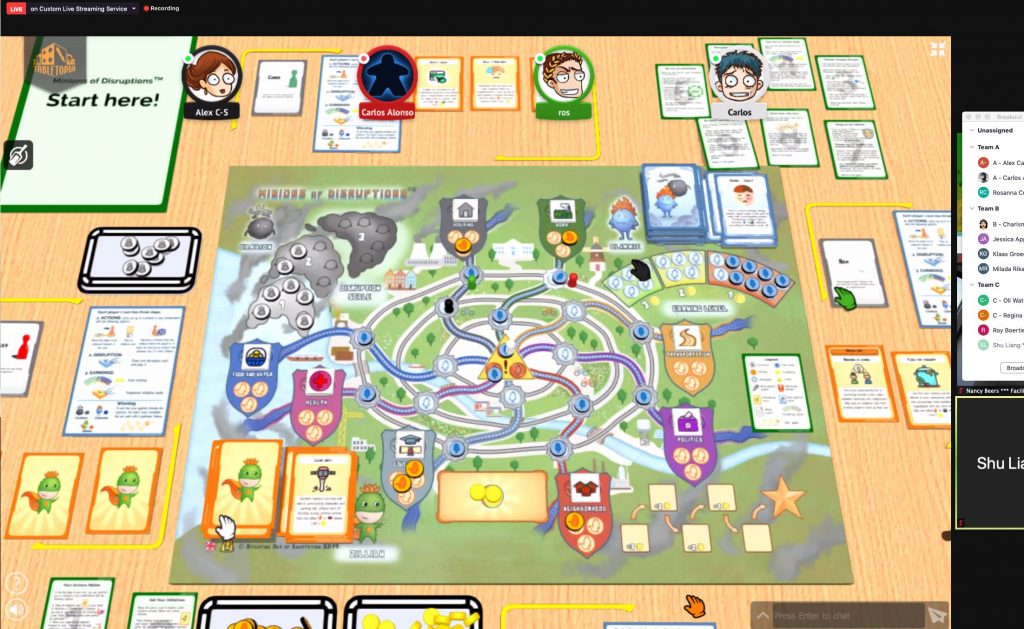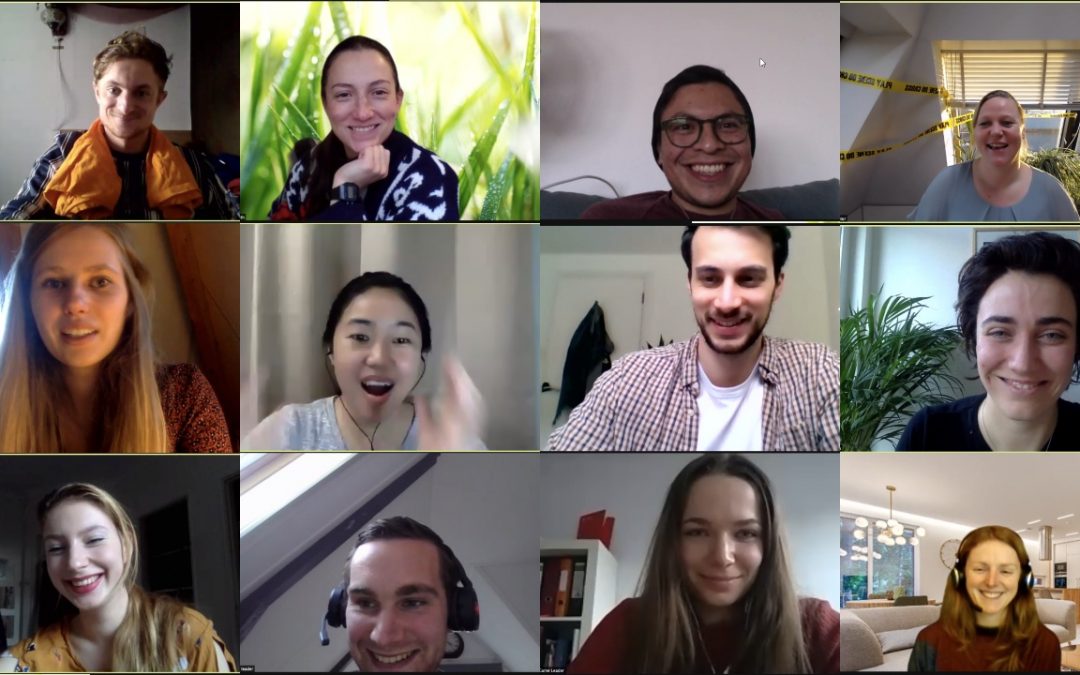Am I the one who figured it out? Is it possible that we can improve our climate decision-making processes and our adaptation and resilience projects with a board game experience? Is gamification the newest approach to climate action?
2019 marked a major change in my life. I moved to Germany and from this moment I started to seek new initiatives, methodologies and opportunities to shape my career and further my professional experience in Europe. I constantly noticed the global challenges we are experiencing to address the goals, principles and objectives in several binding international agreements, and to move towards a more just, equitable and peaceful world.
The current trajectory of our development model, despite the pandemic, has not changed, even though there are multiple initiatives trying to alleviate some of the pieces that have been damaged the most in the economic-financial system, in political governance, and in the socio-ecological systems. We have already reached tipping points, and they are affecting the planetary boundaries so extensively that mitigation is insufficient.
To help in this awakening and transition, more than any other time, we need renewed educational elements capable of teaching discernment and differentiation between a rational and business as usual way of thinking and a complex systemic perspective. In order to take integrated and inclusive decisions regarding the common good.
But what initiatives could facilitate the difficult road ahead of us? What can be done not only to emphasise the mistakes and errors we made in the past but also to clarify the path towards resilience and adaptive capacity?
In this search I came across a game session. This particular game is based on a collaboration and looks for new ways to understand reality through a complex analysis of the current conditions of an urban area. It uses external elements, emergency properties, interdependency interactions and a trade-offs framework to demonstrate how anything that is happening anywhere on the board can have positive or negative influences on the entire game experience. It was amazing to be able to see all that just in one picture, all this complexity portrayed on a game board.
The host of the event Day of Adaptation is a non-profit organization based in the Netherlands, with an inspiring vision that I recognize as a fresh attempt to unveil the importance of communication and climate adaptation solutions. The approach uses fun and dialogue as a framework to comprehend the complex relations between our current development model and the imbalances we have caused to our planet.
The game, Minions of Disruptions, is reminiscent of gamification as a pathway to combine education, development and adaptation. And those three concepts as a basis to boost projects oriented to meet the SDGs and even those objectives and strategies related to resilience. From my particular point of view, the game is complete and a fabulous effort from the authors. By playing it, I realized the importance of narrative to understand the trade-offs between Climate Action and Business as Usual which are illustrated by a battle between the Zillians (climate positive actions) versus the Climions (actions sustaining the current model) and Carbions (emergencies from the system when we reach the tipping points). The game clearly demonstrates how everybody suffers when an avalanche of catastrophes descends and makes everything worse.

Having participated in the session helped me to connect several thoughts about new routes to thrive in the multiple crises we are facing. The next steps require a deeper path of collaboration, networking, experimentation and adoption of this game. In this manner the gamification framework serves a fundamental role in the development of much-needed diversity in projects to address the environmental crisis.
So, Who wants to play?
About the author: Carlos Alonso has worked on different projects related to the Sustainable Development Goals (SDGs), mainly those that aim at urban resilience, sustainable societies, and education for development. His endeavor ranges from the public service scene (Mexico City Resilience Agency) to the private sector (Mexico Climate Initiative, Mexico Carbon Platform), to the academic world (National Laboratory for Sustainability Sciences Institute of Ecology, National Autonomous University of Mexico and the postgraduate programme in Sustainable Societies, Metropolitan Autonomous University). A native of Mexico, Carlos is currently open to further his professional experience in Germany and Europe.

